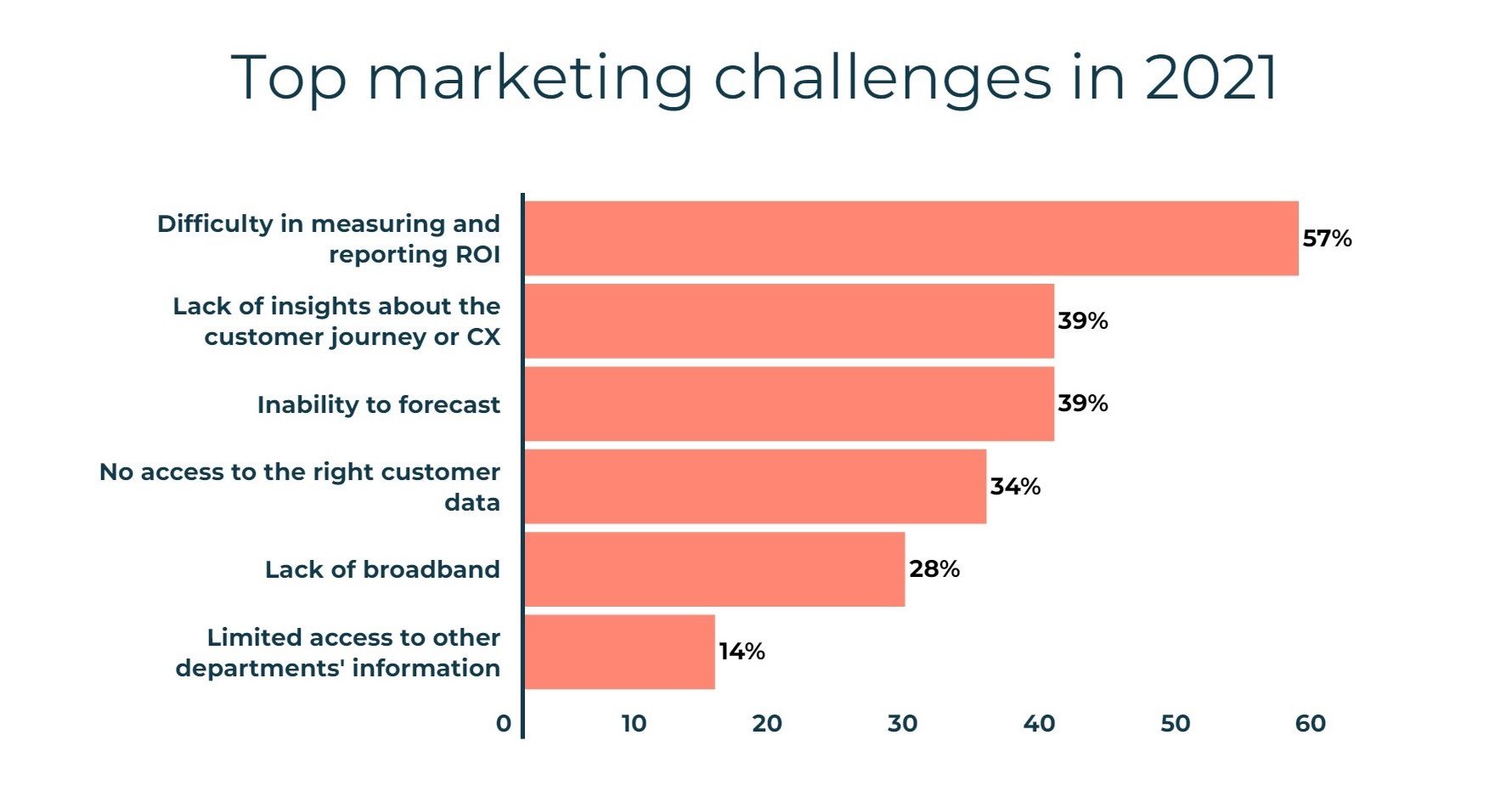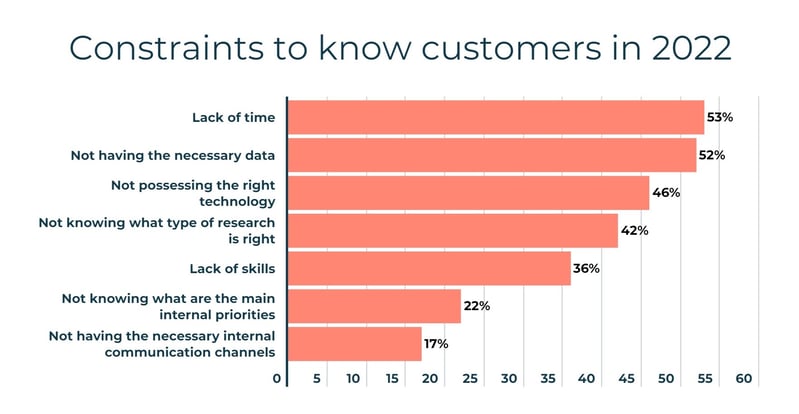According to a new research, measuring and reporting return on investment (ROI) has been the biggest challenge marketers have faced in 2021. Marketing professionals also complain about the lack of insights they have on their clients' customer journey. We review the top marketing challenges in 2021 and how to solve them.

Brandwatch, a customer intelligence consultancy, conducts an annual report on the state of marketing and customer strategies. For their latest report, <<The researcher of 2022>>, they have asked 63 experts about the biggest challenges facing marketing departments in 2021 and the main obstacles professionals have to know their customers. In both cases, respondents could choose more than one answer.
The report provides insights on:
- The main challenges companies have had to fight against in 2021.
- What has worked best in 2021.
- The improvements companies should make to succeed in 2022.
Top Marketing Challenges in 2021

Source: Brandwatch
According to the results of the survey, the main issue for marketers in 2021 has been measuring and reporting the return on investment (ROI) of their actions. This suggests that marketers do not have the right tools or knowledge to monitor and analyse their own activity. On the other hand, it is common for marketers to track a campaign after a short period of time and then forget about it, which leads to misleading results since customer conversion cycles are usually longer.
While some aspects of business activity such as finances are relatively easy to measure, quantifying marketing actions is not so easy. In relation to this, another reason why marketers don't monitor their activity as it should be done is that they don't trust their data. According to a study conducted by Adverity, 34% of CMOs don't trust marketing data. This leads us to the third most answered option, the inability to predict what is coming next or, in other words, forecasting. If marketers do can't properly monitor their activity and don't trust their data, it is very unlikely that they can use data to identify future opportunities and areas for improvement. Identifying the next best steps or predicting customer behaviour is even more unlikely.
In second place, the experts surveyed point to the lack of insights on the customer journey and the customer experience, two of the most relevant aspects in the era of digital marketing.
As if to explain the reason behind the shortcoming, 34% of respondents claim they have no access to the right customer data.
Of course, having the right consumer data is a must for understanding customers. Without quality data, it is impossible to generate intelligence and make marketing decisions based on data (data-driven marketing). As we have noted many times in this blog, organisations produce more data than they are capable of harnessing. This can be explained by companies not having been able to foster a data-driven culture. If organizations don't initiate their data-driven transformation, today's problems will also be tomorrow's.
In addition to data, companies also need to understand that knowledge exists beyond data analysis. Qualitative techniques such as the Buyer Persona method or market research can also enrich our customer data and provide business intelligence.
On the other hand, 14% of respondents expressed they have problems accessing other departments' information. When it comes to customer data, it is very common that every department within a company generates customer data. However, this data is often stored in fragmented silos that prevent marketers from creating 360º customer profiles. This is, in fact, one of the biggest problems in terms of developing efficient customer strategies and managing customer relationships. However, a new technology might be the solution to this problem: the Customer Data Platform (CDP), through which organisations can easily build a single customer view.
In the era of customer-centricity, not knowing your customers is the same as failing. Without an efficient data strategy, companies will not be able to connect with their customers and satisfy their needs.
Why are companies unable to understand their customers?

Source: Brandwatch
As for the reasons that prevent companies from knowing their customers, 53% of the experts believe that it is due to lack of time. 52% confirm what we already knew, that they do not have the necessary customer data or tools to understand their customers (46%).
Pretty much all the answers point to the same conclusion: marketers do not have the time, the knowledge or the resources to get to know their customers.
Rather than a lack of data problem, the issue is that marketers don't know what to do with that data or don't have the technology to transform it into intelligence. Many organisations mistakenly believe that they do not have enough data about their clients when, in reality, they have more data than they even know about, but do not know where to get it or how to use it.
All of this suggests that, in order to truly benefit from data, we must know what data we have, which is relevant, what tools we need and what it is we want to achieve.
At Kale we are experts in accelerating business and boosting brands through data, turning it into actions that increase sales and improve the customer experience.
We can help you! Take a look at our services or get in touch.




